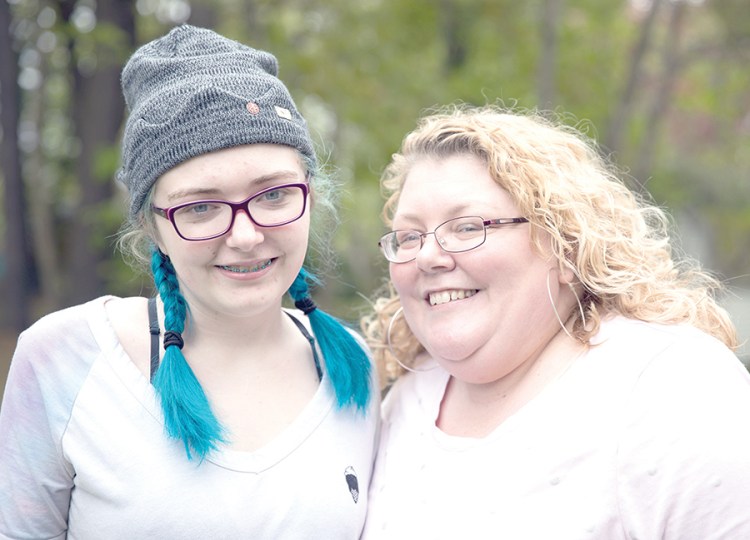Both mother and daughter suffer from Ehlers-Danlos Syndrome (EDS), a rare set of inherited disorders that affect connective tissues and cause severe complications. Both women were both diagnosed about four years ago.
 As a result of EDS, mother Sarah Dyer suffers from Chiari malformation, a condition in which brain tissue extends into the spinal canal, compressing the spine and brain stem, and a number of related diagnoses.
As a result of EDS, mother Sarah Dyer suffers from Chiari malformation, a condition in which brain tissue extends into the spinal canal, compressing the spine and brain stem, and a number of related diagnoses.
Dyer said smoking cannabis relieves intense pressure in her head.
“Sometimes it gets so bad, and by using cannabis, it’s almost like it instantly takes it away,” Dyer said.
“All the medications I have tried – prescribed – have not touched what cannabis has been able to do.”
Sarah’s daughter, Emma-Leigh McCutcheon, suffers from Syringomyelia, a condition of fluid-filled cysts in the spinal cord, and other diagnoses as a result of EDS.
“I have bubbles in my spine,” said Emma, a high school student. “I also get wrist, ankle, and knee aches from the EDS.”
Emma said she was never prescribed medicine for her condition, but cannabis has proved effective.
“You feel good. You don’t hurt as badly,” she said.
“I can smoke, and then I can do my homework, and I get 100 on it.” She said cannabis also helps her sleep better at night.
Both said they do not feel cannabis is a pain reliever, but rather a tool to help them deal with deep nerve pain.
“Cannabis has made it so I can function and tolerate the pain,” Sarah said.
“I think it just makes it so you forget it,” Emma added.

“All the medications I have tried … have not touched what cannabis has been able to do,” says Sarah Dyer, shown with her daughter, Emma-Leigh McCutcheon.
“Yeah, it’s almost like it puts it on the back burner,” Dyer said.
Dyer said cannabis aided her recovery from neurosurgery, allowing her to bounce back more quickly than doctors expected.
“Most people are out of work for about four months with what I had done, and I was back to work within two months, ready to go,” Dyer said
“Even during that two months, my mom really had to tell me to slow down and let myself heal.”
With the use of cannabis capsules following a surgery, Emma returned to school in about half the expected recovery time.
Dyer hopes that cannabis is also acting to protect their nerves from further damage.
“While there’s no cure for what we have, hopefully we can delay the progression. It’s all I can hope for,” she said.
Emma said some of her friends are jealous that she gets to smoke marijuana, but her disease prohibits her from doing many of the things they can do, like go to gym class, jump on a trampoline, or ride rollercoasters. Access to cannabis has made her disease more manageable amid those limitations.
“I don’t know what I would do without it,” Emma said.
By Jenny Johnson
Comments are not available on this story.
Send questions/comments to the editors.


